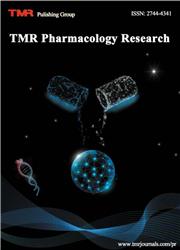Exploring the anti-cancer effect of taraxasterol using network pharmacology, molecular docking and in vitro experimental validation
引用次数: 0
Abstract
Taraxasterol (TS) is a naturally occurring pentacyclic triterpenoid extracted from the traditional Chinese herb Taraxacum mongolicum . Previous studies have highlighted its significant roles in exhibiting anti-inflammatory, anti-oxidant, and liver protective effects. In the present study, the anti-cancer potential of TS against cervical cancer was investigated, employing network pharmacology techniques, molecular docking, and in vitro experimental validation. TS exhibits its anticancer properties by modulating multiple targets, pathways, and biological processes. In vitro experiments demonstrated the potent inhibitory effects of TS on cancer cell growth and migration, while no significant impact on apoptosis was observed. The primary objective was to elucidate the anti-cancer potential of TS, which is a crucial lead compound in the treatment of cervical cancer. The findings may serve as a basis for the development of novel anticancer therapeutics and medicine-based interventions for cervical cancer.采用网络药理学、分子对接、体外实验验证等方法探讨他乐沙醇的抗癌作用
taraxastrol (TS)是一种天然存在的五环三萜,从传统中药Taraxacum mongolicum中提取。先前的研究强调了它在抗炎、抗氧化和保护肝脏方面的重要作用。本研究采用网络药理学技术、分子对接、体外实验验证等方法,研究TS对宫颈癌的抗癌潜力。TS通过调节多种靶点、途径和生物过程来显示其抗癌特性。体外实验表明,TS对癌细胞的生长和迁移有明显的抑制作用,而对细胞凋亡无明显影响。主要目的是阐明TS的抗癌潜力,TS是治疗宫颈癌的重要先导化合物。这些发现可能为开发新的抗癌疗法和基于药物的宫颈癌干预措施提供基础。
本文章由计算机程序翻译,如有差异,请以英文原文为准。
求助全文
约1分钟内获得全文
求助全文

 求助内容:
求助内容: 应助结果提醒方式:
应助结果提醒方式:


